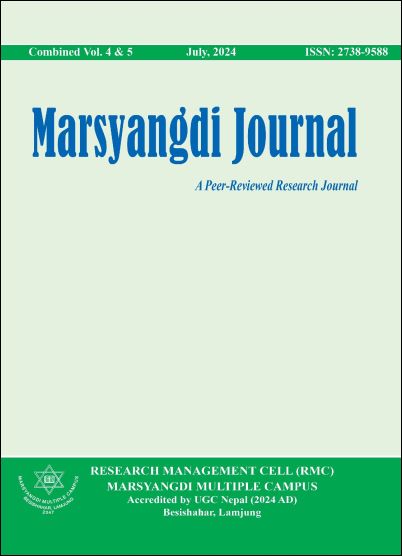Dividend Policy and its Impact on Price: Empirical Insights from Nepalese Life Insurance Companies
DOI:
https://doi.org/10.3126/mj.v4i1.67814Keywords:
Dividend irrelevancy, dividend policy, dividend relevancy, earnings per share, share price, price-to-earnings ratioAbstract
This study aims to evaluate the correlation and examine the impact of the explanatory factors, specifically EPS, DPS, PE ratio, management expenses to premium collected, capital to total assets, efficiency ratio, age of firm, and profitability on market price per share. Out of 14 life insurance companies operating in Nepal, 9 companies had been chosen for the study. The ordinary least square (OLS) method is used to examine the effect of predictor variables on MPS. The findings indicate that EPS, DPS, and PE ratios exhibit positive and significant correlations with and influence on share price (MPS). Moreover, this study identifies a detrimental correlation between profitability and MPS. The management expenses, in relation to the premium collected and capital to total assets, exert a detrimental and statistically significant influence on MPS. This study provides evidence in favor of the dividend relevancy theory, as it demonstrates that the dividend per share (DPS), earnings per share (EPS), and price-to-earnings (PE) ratios have a statistically significant and positive influence on the share price, as assessed by the market price per share (MPS). Nevertheless, this analysis challenges the dividend irrelevancy argument by highlighting that a company's market value is determined by its operational income rather than its capital structure or dividend payout policy. Therefore, this research supports the dividend relevancy theory. The findings of this study can be advantageous for investors seeking to enhance their returns and augment their wealth through investments in lucrative areas.




